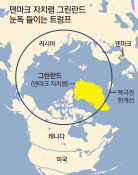Tax reform sparks debate over benefits for wealthy
Tax reform sparks debate over benefits for wealthy
Posted November. 06, 2024 08:28,
Updated November. 06, 2024 08:28
The proposed amendment to the tax laws, now up for deliberation in the National Assembly, has sparked debate over its impact on different income groups. While it reduces inheritance tax, commonly seen as “the rich’s tax,” the government claims that the revised bill will primarily ease the tax burden for working- and middle-income families. According to government estimates, high-income earners would see their tax burden reduced by 166.4 billion won, while working- and middle-income earners would benefit from a larger reduction of 628.2 billion won. Vice Prime Minister and Finance Minister Choi Sang-mok emphasized that the bill’s primary aim is to reduce taxes on the middle class, not the wealthy.
However, recent data paints a different picture. Figures from the National Assembly Budget Office reveal that the reduction in tax burden for high-income earners following this year’s tax reform exceeds 4 trillion won—13.5 times more than the reduction expected for working- and middle-income families. Over the next five years, the tax burden for high earners is projected to fall by over 20 trillion won, while the reduction for working- and middle-income families will only amount to 1.7 trillion won.
These discrepancies are mainly due to differences in how the government and the budget office categorize the benefits from changes to inheritance and gift tax laws. The government has grouped tax benefits for inheritors under a “miscellaneous category,” citing difficulties in precise analysis. However, the budget office attributes these benefits mainly to high-income earners. This has led to criticism that the government has downplayed the tax benefits for the wealthy to make the bill appear more focused on the middle class.
If opposition parties question why the government’s projections exclude inheritance and gift tax reductions for high earners, officials would likely argue that some middle-income families might also benefit from these reductions, depending on individual circumstances. Nonetheless, for transparency, the government needs to present a clear rationale for such calculations to prevent further public controversy.
As South Korea faces record tax deficits for the second consecutive year, the Yoon administration’s commitment to “sound finance” appears increasingly challenging to uphold in light of tax cuts. To maintain fiscal health with reduced tax revenue, the government would need to either curtail additional tax cuts or implement spending cuts. Instead, it has released questionable figures under the “middle-income tax relief” banner to justify ongoing reductions. The administration has even dipped into public funds designated for housing savings, raising questions about the sustainability of its fiscal policy. If the government continues relying on questionable tactics, its fiscal objectives may prove unsustainable, ultimately burdening the national economy.
Headline News
- Former commander's notebook includes potential plan to incite N. Korean attacks
- Constitutional Court to proceed with impeachment trial on Friday
- Deputy PM confirms next year’s under 2 percent growth projection
- Ukraine says Russia uses fake IDs to hide N. Korean troops
- Pres. Yoon refuses impeachment documents for a week







